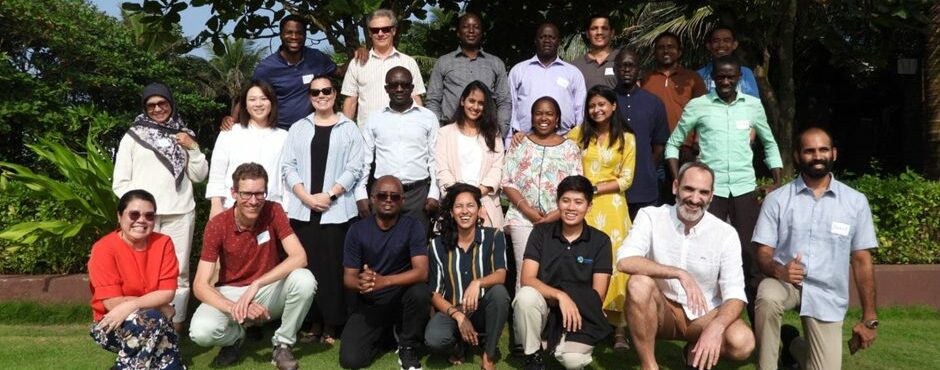
Community of Practice (CoP) Technical Meeting: Empowering Wetland Conservation Across Borders (November 11–15, 2024 | Gopalpur, Odisha, India)
-
Capacity development
-
Rivers and lakes
-
Wetland values, status and trends
The Community of Practice (CoP) Technical Meeting held from 11-15 November 2024 at the Mayfair Palm Beach Resort in Gopalpur, Odisha was a pivotal gathering for professionals dedicated to wetland conservation. With 25 participants from 16 countries, the meeting created a collaborative forum for sharing knowledge, experiences, and strategies for effective wetland management and conservation across diverse landscapes.
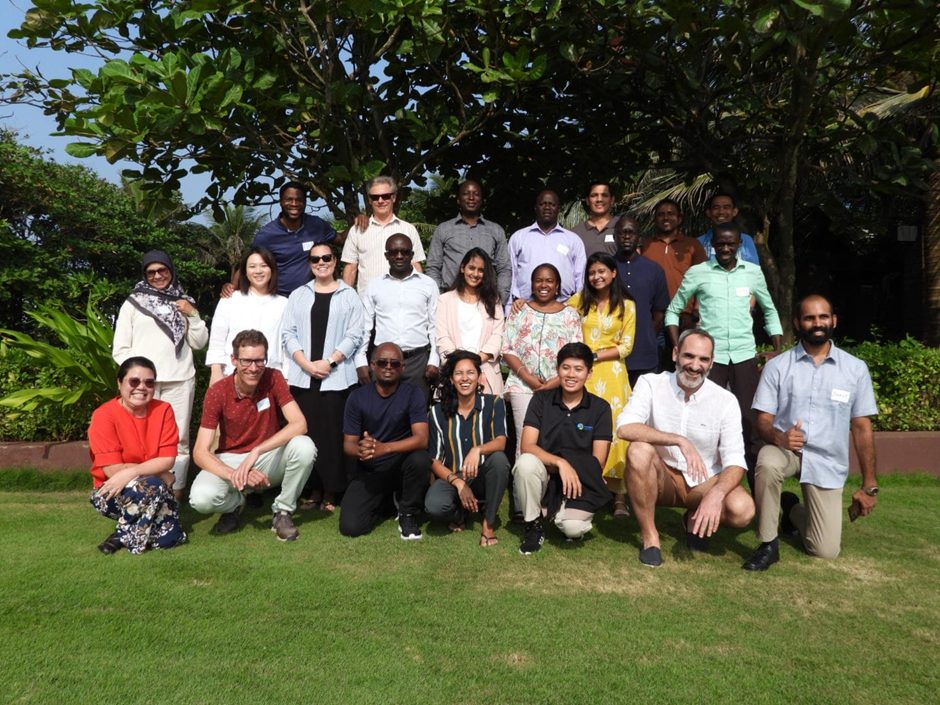
The meeting aimed to foster knowledge sharing and collaboration among practitioners from the Wetlands International network by:
Establishing a Wetland International (WI) Learning Agenda: This included identifying priorities for organizational learning and developing strategies to operationalize the CoP. Discussions focused on building effective knowledge-sharing platforms, communication methods, and collaborative approaches to strengthen the global wetland conservation effort.
Exploring the 4 Returns Framework (4Rs): A significant portion of the discussions revolved around applying the 4 Returns (W4R) framework—focusing on ecological, social, economic, and inspirational returns—to wetland landscapes. The framework’s potential for wetland restoration was examined, with insights into its adaptation to unique wetland challenges. Participants shared their experiences from diverse landscapes, such as Chilika Lagoon in Odisha, Jeta-Pecixe-Cacheu, and others, highlighting successful management practices.
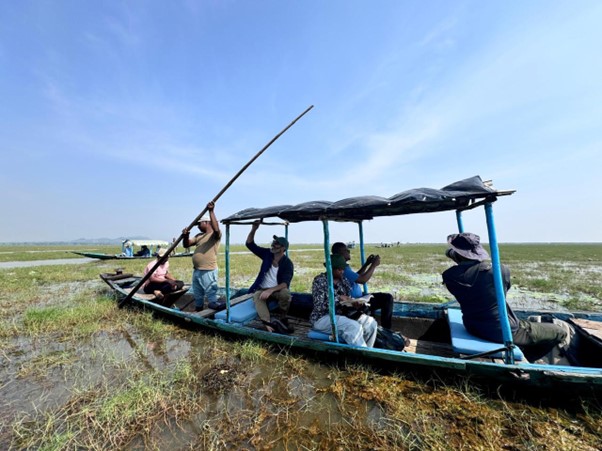
Opportunities and barriers in Wetland Conservation: There were in-depth discussions about the opportunities and barriers of integrating the 4Rs framework, particularly concerning stakeholder alignment, balancing economic returns (like carbon credits) with community benefits, and maintaining ecological integrity while promoting sustainable livelihoods. The importance of capacity-building and innovative financing mechanisms was also emphasized.
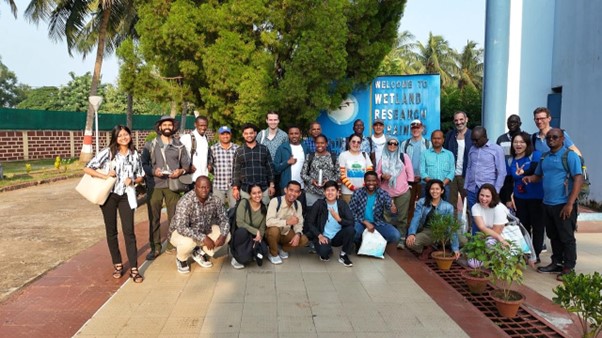
The meeting also included a field visit to nearby Ramsar Sites and the training centre. A birding excursion to Mangalajodi, a wetland ecosystem teeming with birdlife, and a visit to Tampara Lake highlighted the meeting, where participants examined rich biodiversity, sustainable practices blending livelihoods and ecological restoration. Visit to the Wetland Research and Training Centre (WRTC) and meeting with representatives from the Chilika Development Authority provided an in-depth understanding of the restoration successes at Chilika Lagoon, policy integration for wetland management and community-stakeholder interactions for successful conservation efforts.

The meeting subsequently emphasized building a sense of community within Wetlands International by strengthening trust and collaboration among participants through participatory exercises and knowledge exchange. Activities such as storytelling encouraged participants to reflect on their personal motivations and professional journeys, revealing shared values like passion for nature, community engagement, and the integration of livelihoods with conservation. Collaborative exercises, including landscape definition and stream mapping, aimed to align participants on shared goals by exploring diverse ecological, social, and governance dimensions of wetlands. These activities were designed to deepen connections, enhance understanding of varied perspectives, and establish a foundation for future collaborative efforts within the Community of Practice.
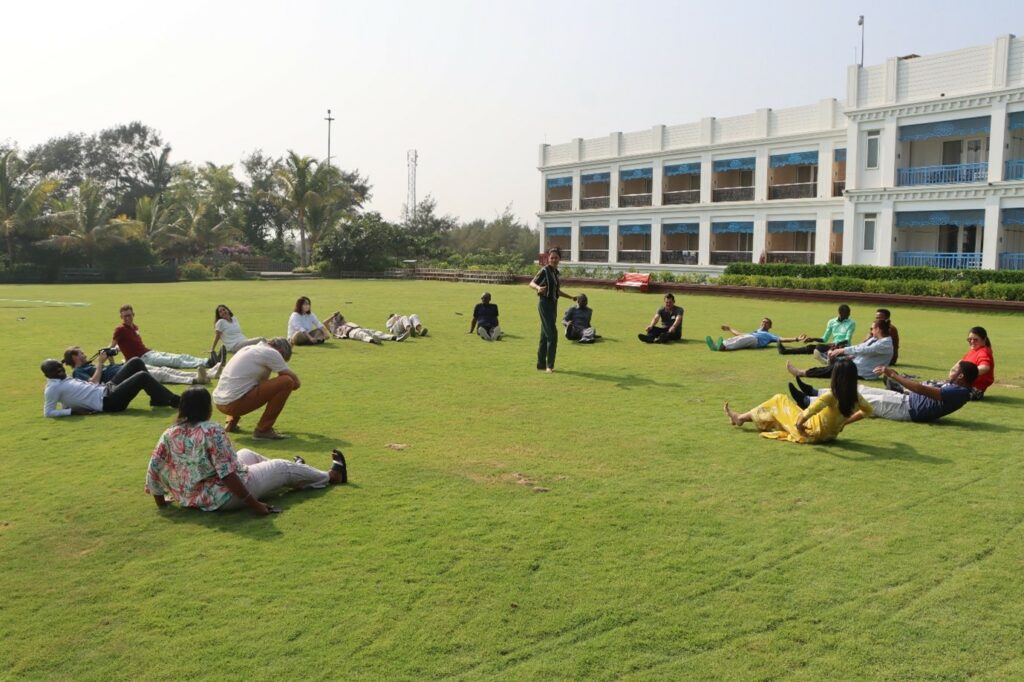
The CoP is envisioned as a multilateral platform where members learn from each other’s landscapes and experiments, enabling innovation and adaptation for wetland conservation. To further develop this expanding and growing network of wetland conservation practitioners, a draft report outlining the workshop outcomes, along with the next steps and practical insights, will be prepared and distributed to participants for input.
